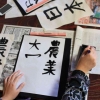[5] Paul, L., Johnston, R. R., & Short, E. (Eds.). (2016). Children's Literature and Culture of the First World War. London: Routledge.
[6] Marsden, W. E. (2000). 'Poisoned history': a comparative study of nationalism, propaganda and the treatment of war and peace in the late nineteenth and early twentieth century school curriculum. History of Education, 29(1), 29-47.
[7] Feldman, D. (2021). Reading poison: Science and story in Nazi children's Propaganda. Children's Literature in Education, 53(2), 199--220. https://doi.org/10.1007/s10583-021-09454-9
[8] Kwong, J. (1988). Cultural revolution in China's schools, May 1966-April 1969. Hoover Institution Press.
[9] Mitchell, J., & Harris, K. (2018). Chairman Mao's Morning Sunlight: Children in the Cultural Revolution.
[10] Leksana, G., & Subekti, A. (2022). Remembering through fragmented narratives: Third generations and the intergenerational memory of the 1965 anti-leftist violence in Indonesia. Memory Studies, 0(0). https://doi.org/10.1177/17506980221122175
[11] Pratama, S. (2020). Teaching Controversial History: Indonesian High School History Teachers' Narratives about Teaching Post-Independence Indonesian Communism.
[12] Orwell, G., Fromm, E., Orwell, G., Orwell, G., Fromm, E., & Fromm, E. (2007). 1984: A novel. Signet Classics.
Baca konten-konten menarik Kompasiana langsung dari smartphone kamu. Follow channel WhatsApp Kompasiana sekarang di sini: https://whatsapp.com/channel/0029VaYjYaL4Spk7WflFYJ2H








